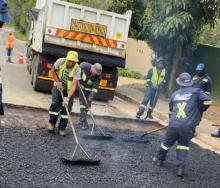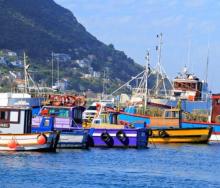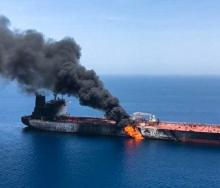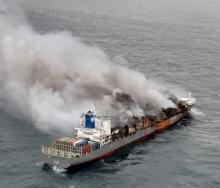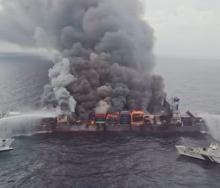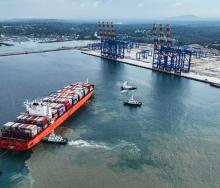Customs in Mozambique has implemented an escort measure to curb the smuggling of fuel between the Port of Maputo and the Ressano Garcia Border Post, but Hazchem carriers fear it has created a dangerous situation for tanker drivers, property, and people in nearby areas.
Mike Fitzmaurice, regional vice president of the African Union’s Organisation for Transport and Logistics, said the convoys are done twice daily by a private security company contracted by Autoridade Tributária de Moçambique (ATM), Mozambique’s revenue authority.
He said hundreds of tankers arrive at the N4 Maputo Corridor every day and are first amassed into the Kilometre Four truck waiting area on the Mozambican side of the border, before being allowed to cross over to South Africa to an area known as “The Canopies”.
“They all arrive at the border at the same time and it’s causing massive backlogging.”
According to the ATM, the measure was apparently implemented to stop fuel theft.
“They (Customs) claim they discovered that criminal elements in Mozambique have found ways to bypass cargo seals and are offloading fuel in Mozambique.”
Although it is most likely possible that organised crime syndicates have indeed figured out a way to bypass technologically advanced cargo seals, and have the necessary means to store or move significant quantities of fuel, it doesn’t add up, Fitzmaurice said.
“I find it very strange because they have four seals on each tanker – one on the front and two on the second trailer at the loading compartments. They also have a seal on the first trailer at the rail.”
He said if one of these seals is tampered with or bypassed through GPS signal jamming, it immediately shows up through telematics.
It is understood that tankers are gathered in Matola outside the port, from where they are arranged into convoys before being cleared to proceed to the border.
“You can imagine how long these convoys are and how many trucks are escorted to Ressano.”
Fitzmaurice said it is neither safe nor a progressive prevention strategy, as the relatively short distance from the port to the border – about 80 kilometres – would enable response vehicles to be dispatched once seal tampering is flagged by a control room.
“These seals can be tracked wherever a truck goes. The moment a truck veers off course or a seal is tampered with, the control room monitoring that truck should know.
“Surely there’s a more professional and non-hazardous way to secure the safe transportation of flammable liquid.”
He added that yesterday two loading permits went missing – permits that are issued by ATM during loading in Matola, claimed by the security company in question, and handed back to transporters at Ressano.
“Customs denied the whereabouts of the permits, and so did the security company,” Fitzmaurice said.
It has since emerged that Mozambique could be in contravention of several regulations signatories are supposed to adhere to regarding the road transportation of Hazchem.
These include regulations set down by the United Nations Economic and Social Council (UNECE), and which are agreed to by the Protocol on Transport, Communications and Meteorology of the Southern African Development Community (SADC), including Mozambique.
Transporters are also advised to familiarise themselves with the World Customs Organization’s SAFE Framework for risk-based border control and trade facilitation as it pertains to high-risk goods like fuel.



